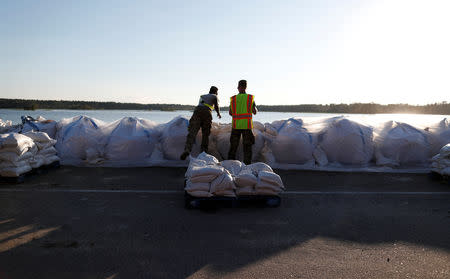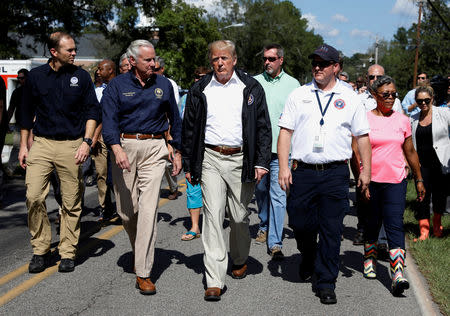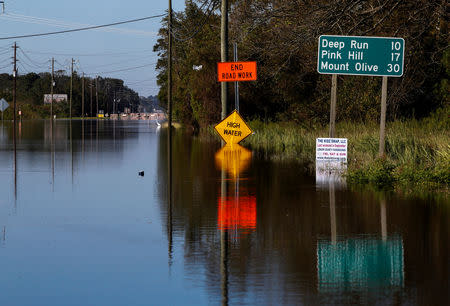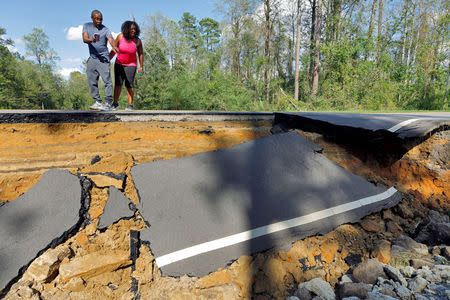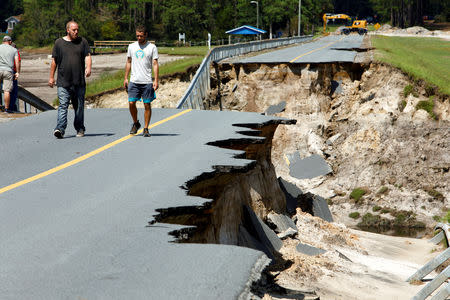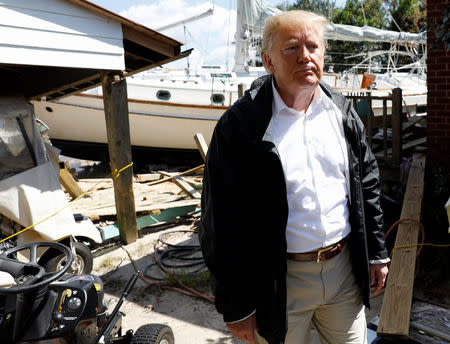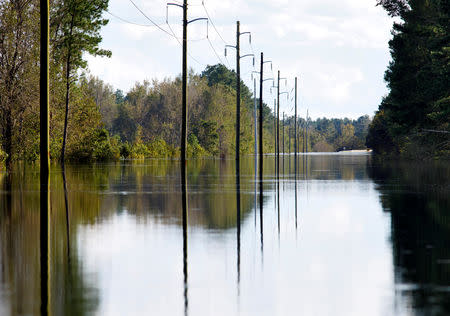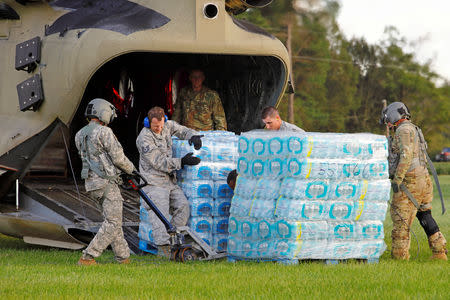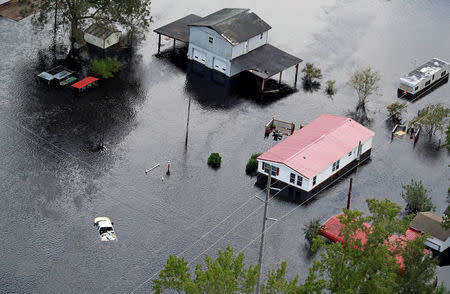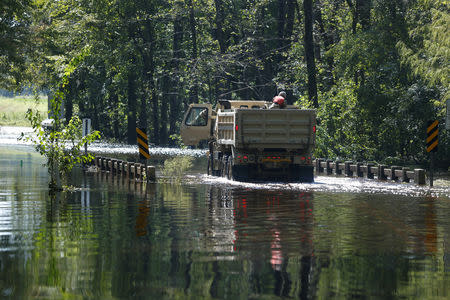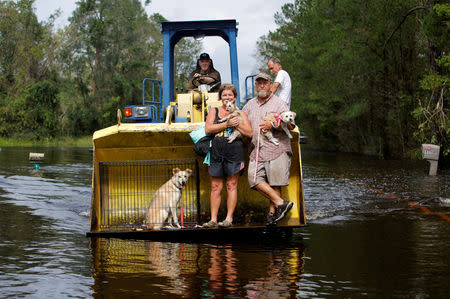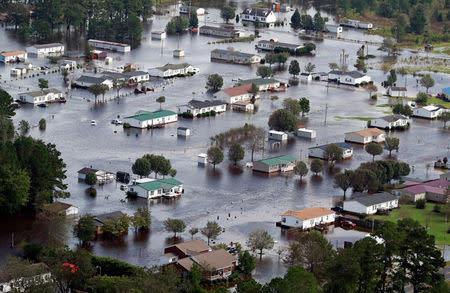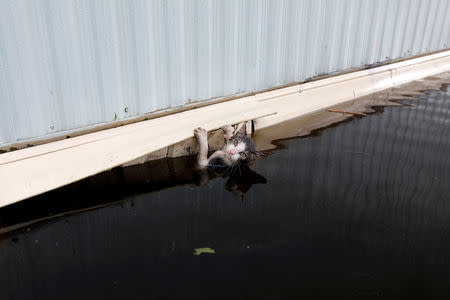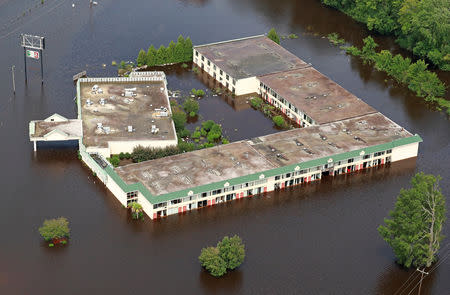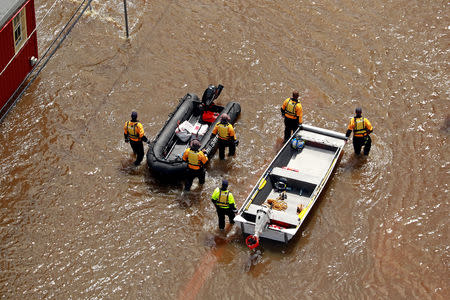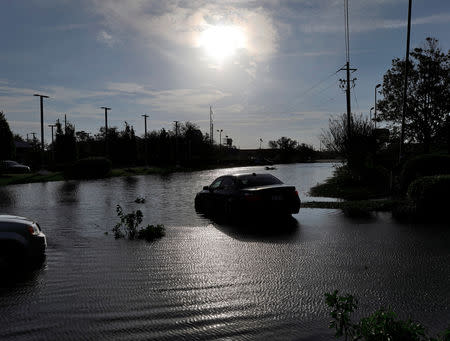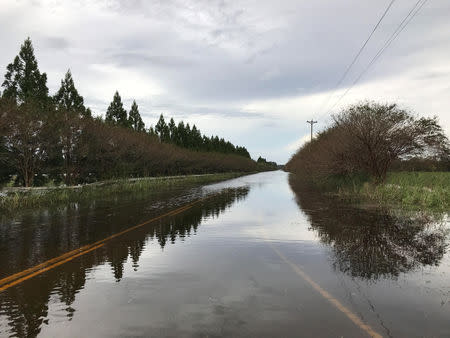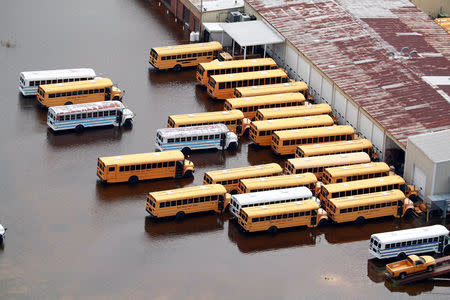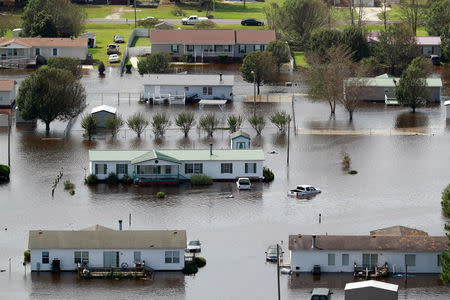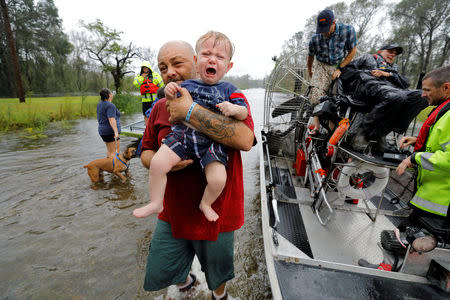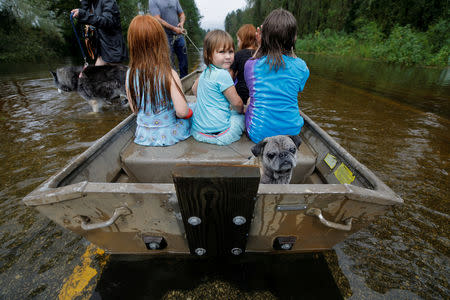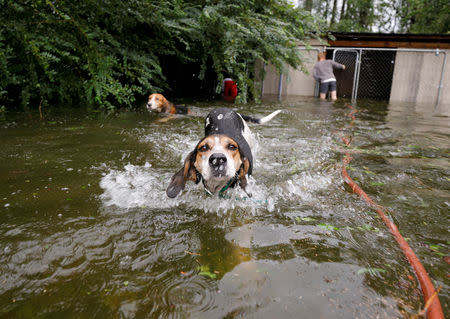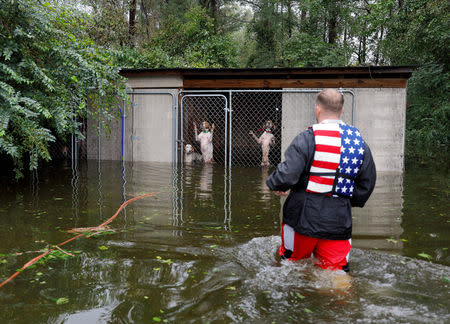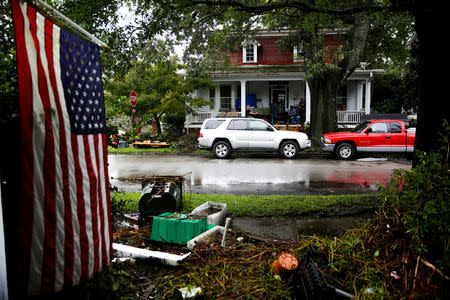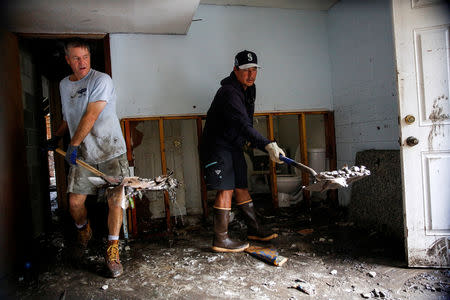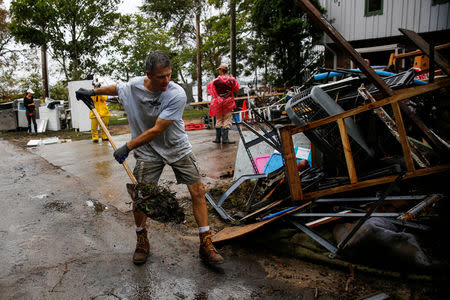'Water coming your way', Trump warns during hurricane tour
By Jeff Mason
CONWAY, S.C. (Reuters) - U.S. President Donald Trump warned South Carolina on Wednesday "water is coming your way" in the aftermath of Hurricane Florence, as the death toll from the massive storm rose to at least 36 after two women were swept away in a sheriff's van.
Trump made his comments after visiting an emergency operations centre in Conway, South Carolina, and speaking to residents who were preparing to evacuate as rivers rose.
"Over the next couple of days, it's going to get rough in South Carolina ... Whatever you need from Washington, we are there," Trump told state and local officials at a briefing.
"Now it looks nice, but it's really the calm before the storm," Trump said, referring to water draining into rivers and waterways after Florence's epic deluge over the weekend. The storm made landfall on Friday as a Category 1 hurricane.
The slow-moving storm has since been downgraded to a tropical depression and moved into the U.S. northeast.
The deaths of at least 36 people have been attributed to the storm, including 27 in North Carolina, eight in South Carolina and one in Virginia.
The latest victims were two women in South Carolina who drowned on Tuesday when a sheriff's department van in which they were riding was swept away by floodwaters.
Some 2,600 people had been rescued by boat or helicopter in North Carolina alone since the storm hit land, according to the state department of public safety.
Some 10,000 people remained in shelters and over 160,000 customers were without power across North Carolina as darkness fell on Wednesday, the department said.
CAPE FEAR RISING
Although the storm has moved on, river flooding still poses a danger.
The Cape Fear River crested at 61.5 feet (19 meters), four times its normal height, on Wednesday in Fayetteville, North Carolina, according to the National Weather Service. The city of 200,000 is near the Fort Bragg Army base in the southern part of the state.
Floodwaters have disrupted efforts to restore power, clear roads and allow evacuated residents to go home.
Wilmington, just down the coast, remained almost completely cut off by flooding from the Cape Fear River and earlier storm surges.
At least 16 rivers remained at a major flood stage, with three others due to crest in the coming days in North Carolina, according to forecasts.
"People in flood prone areas or near waterways need to remain alert as rivers crest and stay above their banks in coming days," North Carolina Governor Roy Cooper said in a written statement. "Stay alert, and stay safe."
Many areas remained cut off by floodwaters and inundated roads. The storm dumped up to 36 inches (91 cm) of rain in parts of North Carolina.
Environmental damage was also mounting as human and animal waste was swept up in roiling floodwaters.
Floodwaters have caused 21 hog "lagoons," which store manure from pig farms, to overflow, creating a risk of standing water being contaminated with bacteria like salmonella, according to the state's Department of Environmental Quality. North Carolina is one of the leading hog-producing states in the country.
Experts have said that climate change has increased the likelihood of more massive, sluggish storms like Florence, capable of dropping record amounts of rain and touching off catastrophic flooding.
Trump, who has been criticized for the federal government's handling of Hurricane Maria in Puerto Rico last year, told officials at a briefing before going to the Marine Corps Air Station Cherry Point in Havelock, North Carolina, "We're going to be there 100 percent."
He visited a church in New Bern, a town of 30,000 people at the confluence of the Neuse and Trent rivers that was hit especially hard by flooding, and joined volunteers in passing out boxed meals to people in a drive-through line.
He walked through a neighbourhood lined with discarded wet furniture, hugging residents and posing for pictures.
(Reporting by Jeff Mason and Ernest Scheyder; Additional reporting by Anna Mehler Paperny in North Carolina, Roberta Rampton in Washington, Bernie Woodall in Miami; Brendan O'Brien in Milwaukee; Jessica Resnick-Ault and Barbara Goldberg in New York and Dan Whitcomb in Los Angeles; Writing by Dan Whitcomb; Editing by Bill Tarrant and Lisa Shumaker)


